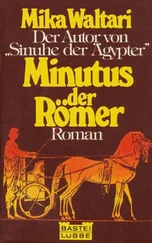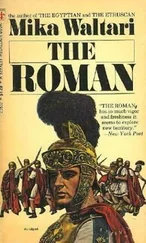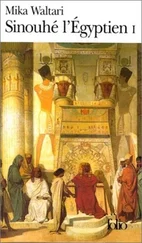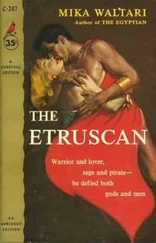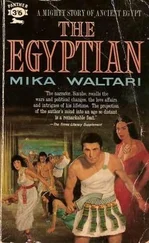“What do you say to Egypt, noble Kislar-Aga?” I asked meekly. “I fancy that that land is far enough away, and I believe I could find refuge there if you allow it.”
While I was speaking there entered on noiseless feet a little eunuch who was also a mute; he closely scrutinized my appearance and with a gesture invited me to be seated. He then began to shave me, and afterward set out many materials and pots of color.
“Egypt will do very well,” the Kislar-Aga assented. “You must forget your former life and assume a new name. You must also alter your appearance. My barber is now shaving you and will next dye your skin brown. Don’t be afraid at the wrinkles that will appear on your face as a result-they will disappear in a few weeks. Tomorrow the Sultan is to proclaim the dissolution of the brotherhood of whom Ibrahim was grand master. Countless dervishes will be fleeing for fear of the Mufti, and if you disguise yourself as one of them you need not fear detection. Remember only to talk as little as possible-and try in every way to behave yourself, or Sultana Khurrem will never forgive me.”
The queer tone in which he said this made me suddenly suspicious, and I leaned forward to look more closely at the inscrutable face of a man trained in the Seraglio.
“Noble Kislar-Aga! Only the mutes have seen us and the Sultan need know nothing of what happens. How comes it that you’re willing to spare me, when in general I know you to be a shrewd man?”
“I am a Moslem,” he replied piously, “and the Sultan is Allah’s shadow on earth. It is he alone whom I must obey, though it should cost me my head.” He stroked his fat chin, coughed, and added casually, “Of course I expect a present worthy of you, and I fancy I shall not be disappointed. No doubt you will allow me to glance into the sack that you’ll be taking with you to Egypt.”
“Alas, what are you saying? Through my wife’s extravagance I’m a poor man, as you must know. I own nothing but my house and furniture, and these I freely give you.”
He shook his head reproachfully.
“Remember you are dead. Your wife also is dead, therefore your fair daughter Mirmah is your only lawful heir. How can you be so base as to seek to deceive the man who has saved your life?”
“Mirmah!” I cried with a start. “What is to become of her?”
The Kislar-Aga, resentful of my ingratitude, nevertheless answered patiently, “Sultana Khurrem is a pious woman and out of compassion for your unprotected daughter will take her into the harem and give her a suitable upbringing. She will also take over the stewardship of her property. The Defterdar’s clerk will shortly appear here to make an inventory and to seal the house with the Sultana’s personal seal. It would be well for you to make haste and bring out your treasure chest, or I may be tempted to follow your good advice.”
I found myself in very great perplexity, for I knew that if I showed him Muley-Hassan’s diamonds I should never see a sign of them again, and he would certainly not allow me to dig up the bag alone.
While we were conversing the little barber had completely altered my appearance and now stood admiring the results of his work. He gave me a set of ragged garments, such as dervishes wear, and an evil-smelling goatskin to throw over my shoulders. He had even provided me with an old staff. I could not recognize myself when I looked at my reflection in the mirror.
I was still anxiously debating with myself how to satisfy the rapacious Kislar-Aga when my own deaf-mute entered the room. With flickering fingers he begged my pardon for entering unsummoned, then signed to me to accompany him to the cellars. The Kislar-Aga would not let me out of his sight for an instant, so we took a lantern and went down together. I seldom went to the cellar save to fetch up a jar of wine, and the deaf-mute led us to a room whose existence I had never suspected, since Giulia alone had instructed Sinan how the house was to be built. Clothes belonging to Alberto lay scattered about, and there was also a richly covered bed where Giulia must often have been when I fancied her at the Seraglio. Remains of food, already moldy, a jar of wine, and a lithe cane showed how diligently they had refreshed and revived themselves. The deaf-mute raised one of the flagstones and from the hole thus exposed came the blaze of gold and precious stones. The Kislar-Aga, forgetful of his dignity, fell on his knees and buried his arms to the elbows in coin, then brought out some magnificent ornaments that he inspected with the air of a connoisseur. Only now did I understand what had become of my wealth during all these years.
“Michael el-Hakim,” said the Kislar-Aga, “your slave is more intelligent than you and deserves recompense. He will be raised to a position undreamed-of for one of his quality, for the mutes have chosen him to be their seventh man, now that his predecessor has disgraced himself by the wounds he inflicted on the Grand Vizier. They have already taught him how to handle the noose and he will soon be entirely competent for his merciful function. It was no doubt to win my favor that he showed us this hidden treasure.”
He glanced with benevolent condescension at the deaf-mute and even patted him on the back. But the slave fell upon his knees to me, kissed my feet, watered my hands with his tears, and looked at me with so intelligent and human an expression that with a flash of insight I realized that he knew more about me than I had ever suspected. My repugnance melted away and with my finger tips I touched his brow, eyes, and cheeks as a sign that I understood him. At the same time I felt greatly relieved not to be burdened with him on my journey to Egypt. The Kislar-Aga grew impatient and said, “Michael, you know me for an honest man. Take ten gold pieces from this heap; that’s a great sum for a poor dervish. You may also give a gold piece to your slave.”
Without further delay he took off his costly kaftan and spread it upon the ground, then with both hands heaped gold and jewels upon it. He had just tied sleeves and hem together to make a bundle when there was a fearful explosion. The floor shook, and plaster poured from the ceiling. The portly Kislar-Aga shook like a jelly and cried, “Allah means to punish the city! This is an earthquake. Let us hurry out before we’re trapped like rats beneath the tumbling walls.”
I too was frightened, but as I listened I could distinguish thunderous shots and understood that a cannon ball had struck the house. The janissaries in the garden were yelling at the tops of their voices and guessing at once what had happened I cursed Andy from the bottom of my heart because he would not even let me die in peace, but at the last moment must come meddling in my affairs. I ran swiftly upstairs and out into the garden, to see flames bursting from the janissaries’ muskets. The din of the shooting deafened me, and it was then that I became aware of a dozen wine- and opium-maddened dervishes howling and whirling and brandishing scimitars all over my flowerbeds. I roared to Andy to call off this nonsense, the Kislar-Aga standing behind me meanwhile, trembling and holding me convulsively by the sleeves. Like most eunuchs he was afraid of noise and shooting. Andy obeyed and staggered forward, yet his eyes passed me by and he said inquiringly, “The voice is Jacob’s, but where is Esau’s hairy breast? I seemed to hear my brother Michael’s bleating voice, though I came only to take charge of his corpse.”
The Kislar-Aga, much to the onbash’s relief, dismissed the janissaries, who had not dared fire directly on the holy men. These now whirled about the garden in their wild dances, calling on the name of Allah, reciting verses from the Koran, and gashing one another with their swords until their blood ran down in streams. To my delight not even the onbash had recognized me after my treatment at the barber’s hands.
Читать дальше

